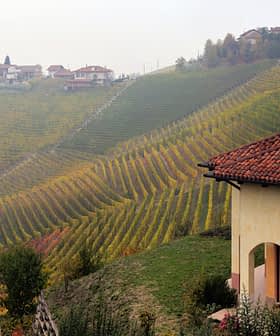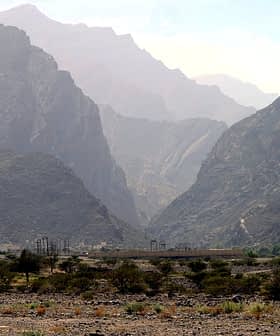Is uprooting the only option to save Apulia’s olive groves? In Italy, the debate is heated and doubts are rising, while growers and citizens prepare to fight against commissioner Siletti’s decisions.
Things in Apulia — the Italian region where the olive-tree-killing Xylella fastidiosa epidemic has been spreading since 2013 — are getting more and more complicated. The debate over the need to uproot infected olive trees and the massive use of insecticides against the vector insects on grasslands and dry-stone walls is pressing.
A few weeks ago the Protezione Civile (Civil Protection) approved a plan proposed by the appointed Commissioner Giuseppe Silletti, head of Apulia’s State Forestry Corps, to uproot the infected plants and use pesticides on affected crops and across wide buffer zones in Salento to prevent the spreading of the disease.
In his speech at the Agriculture Committee at the Chamber of Deputies, Silletti called for a “precision intervention” with respect for the environment, “surgical” uprooting, soil ploughing and use of select insecticides when needed, instead of more invasive herbicides.
Despite Siletti’s caution, a number of voices were raised in protest against the uprooting and the other measures, claiming the need to preserve the valued heritage of Salento’s centuries-old olive trees — recently submitted to Unesco for official cultural status — and the possibility that the Xylella might actually be harmless to olive trees.
As a well-documented article written by Elisabetta De Blasi on Teatro Naturale website reported, several scientific opinions, including the EFSA 3989 report dating back to January 6, 2015, declare that the Pauca subspecies of Xylella bacteria could be among the causes for the Salento olive trees’ drying, but there was no evidence it is the only cause.
According to the EFSA report, uprooting didn’t prove to be effective in other areas of the world where the bacteria is present: “A thorough review of the literature yielded no indication that eradication is a successful option once the disease is established in an area.”
See Also:More on the Xylella fastidiosa Outbreak in Apulia
Moreover, an Italian audit published on 5th March revealed that among over 13,250 samples taken from trees growing in fields and nurseries, a mere 242 tested positive to Xylella. The fact that a number of positive olive trees were symptomless also suggested that the drying could be linked to other causes such as a fungus.
Some suspect indiscriminate use of herbicides and anti-heartworm sprays in the area are damaging the trees, not to mention harming the health of locals (such as the glifosate-based Roundup Crop Prevention made by Monsanto, which is a suspected carcinogen). Moreover, De Blasi points out, the plan against Xylella involves the use of chemical substances that have been declared toxic by EFSA itself.
The risk to endanger the Apulian landscape and environment, and to potentially damage the flourishing tourism industry deeply linked to the beautiful old olive groves, has caused an outcry and a lot of people — Apulia citizens, producers, agronomists and a number of celebrities – have rallied against the course being taken by the Italian government, the European Commission and the Apulia Region.
While in some cases the objections ring of a “conspiracy theory” approach implicating Big Pharma and Evil Government, others seem to be rational, well-documented, and certainly heartfelt.
Professor Giuseppe Altieri, who teaches phytopathology, entomology, organic agriculture and agro-ecology and is a researcher at the Agernova group in Umbria, is firmly exposing the risks of the approved intervention plan. With surveys in hand he has asked Siletti to stop the massive use of insecticides, quarantine lines and uprootings which in his opinion could only worsen the health of the Apulian olive groves; he invited Siletti to concentrate the efforts on a “rational agro-ecological management” increasing the biodiversity of the agricultural ecosystem. He also asked for the repealing of the ban on selling and planting not only foreign but even indigenous species in the Lecce area.
The Salento-born economist Daniele De Michele, who is also a well-known writer and DJ under the name of Don Pasta, wrote a fervent letter in Corriere della Sera addressed to the agriculture minister, Maurizio Martina, to Apulia governor Nichi Vendola and Lecce Province’s president Antonio Maria Gabellone to stop the killing of trees. “The result of the last 50 years of agricultural loans and financing was the abandon of our rural areas,” De Michele said. “The paradox is that olive trees have been either over-treated or completely uncared-for. But nowadays there are a lot of people who care about their own olive trees, and they do so in a good and clean way. We have to start again.”
On the other hand, politicians and researchers, including Donato Boscia and Giovanni Martelli, who determined Xylella fastidiosa was the cause of all of the damage to the region’s olive trees, insist on the necessity to isolate and stop the disease’s spread.
Others have a different opinion altogether. In his latest speech at the European Agriculture Committee, EU Health Commissioner Vytenis Andriukaitis said “the highest vigilance is now essential to preserve the farm economy” in Salento, and that they are “encouraging a more precautionary approach” to stop the bacteria’s diffusion. Meanwhile, the TAR (regional administrative court) of Lecce suspended the uprooting of an olive grove in Oria, one of the affected villages, after the owner’s appeal.
The situation in Salento continues, the stress levels rise and the debate over how to save its sacred trees rages on.








